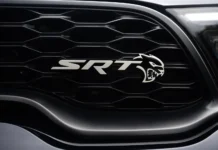
Diesels have had a poor showing in recent years. From emissions scandals to their overall dirty image, manufacturers are moving away from the engines.
On the back of recent emissions cheating scandals from auto manufacturers, the market share of diesel engines is rapidly declining. In Europe, for instance, diesel’s market share fell 8% 2017 to 2018. In the first quarter of 2017, diesel cars represented 46% of the total European market, according to a Bloomberg report. The same period this year, and that figure has gone down to 38%. That’s a significant drop off, and matters aren’t likely go get much better anytime soon. Cities all over the world are going to greater extents to ban fossil-fueled cars – particularly diesels – from their most populated areas. You have to wonder then – could we be looking at the end to diesel cars forever?
Bosch doesn’t seem to think so. In fact, they’ve invested in cleaning up diesels’ act. To that end, the company claims to have developed a new system that cuts nitrogen oxide emissions, a dangerous component of diesel exhaust that contributes to smog. According to Bosch CEO Volkmar Denner, “This breakthrough offers the opportunity to shift the heated debate over diesel into new territory and, hopefully, bring it to a close.” As customers move away from diesels and shift to gasoline-powered or electric cars, the company is doubling down on the engines. By doing so, they hope to stave off the diesel’s decline in market share over recent years.

New process to tackle NOx emissions
Bosch’s new system reportedly lowers nitrogen oxide emissions by optimizing exhaust temperatures. As a result of thermal management, the company claims it managed to lower NOx emissions to 1/10th of the legal limit as of 2020. Interestingly, the system doesn’t require new hardware, but can only be fitted to new diesel cars.
The company is sticking to its guns with diesel engines, even in an increasingly electrified automotive industry. The CEO is quoted in a statement as saying:
“Combustion engines — whether powered by diesel or gasoline — will soon emit so little in the way of particulates and nitrogen oxides that they will have no significant impact on the air.”
As the largest supplier of diesel engine components to automakers, Bosch aims to move the company away from recent scandals. Instead, Denner stated the company cooperates with authorities, and called for more stringent emissions testing and greater transparency. He said the company won’t use technology that recognizes test cycles and optimizes accordingly.
It’s also a sign that, as manufacturers like Mazda and Infiniti develop more efficient gasoline engines, some like Bosch aren’t giving up on diesel either. Stay tuned to TFLcar.com for more diesel updates!


























